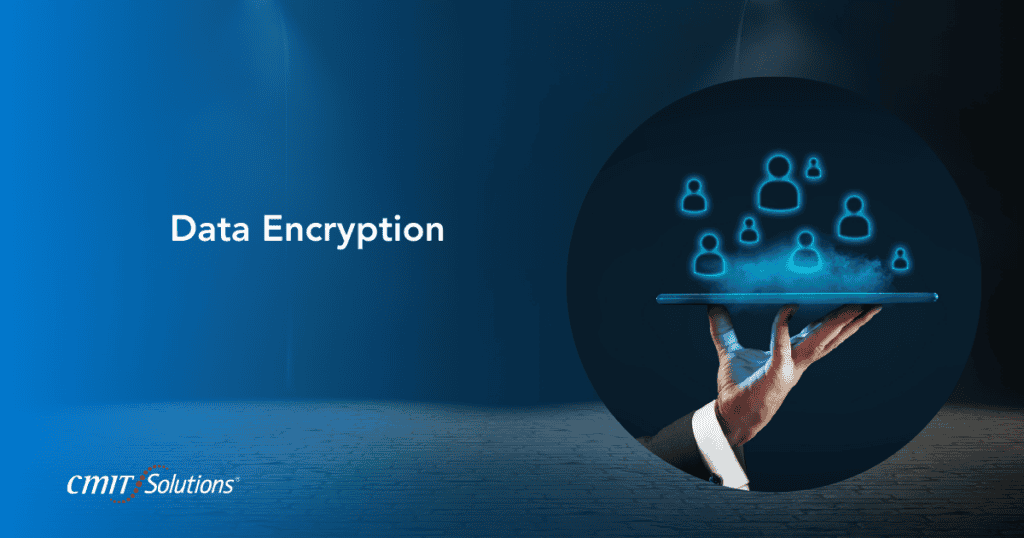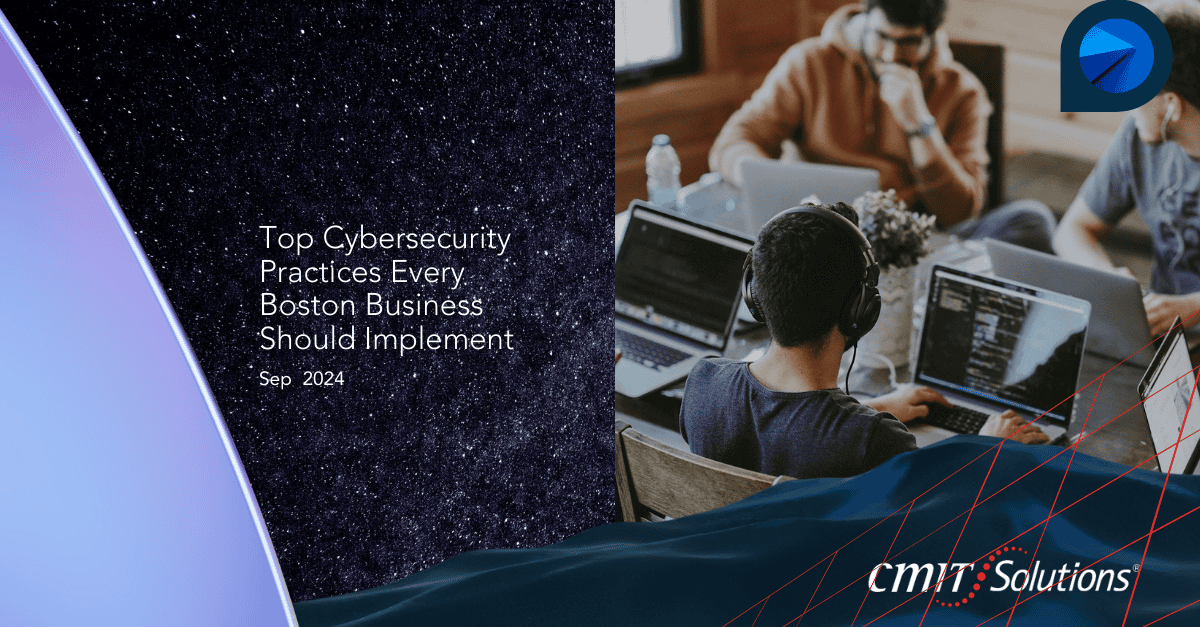In today’s digital age, businesses face an increasing number of cybersecurity threats that can disrupt operations, compromise sensitive data, and cause significant financial losses. With Boston’s thriving business ecosystem, companies of all sizes need to adopt robust cybersecurity practices to protect their assets and maintain the trust of their customers. At CMIT Boston Newton Waltham, we specialize in helping businesses fortify their defenses against cyber threats. In this blog, we’ll outline the top cybersecurity practices every Boston business should implement to stay protected in an ever-evolving digital landscape.
1.Regular Software Updates and Patching
One of the simplest yet most effective cybersecurity practices is keeping software and systems up to date. Cybercriminals often exploit vulnerabilities in outdated software to gain unauthorized access to networks and systems. By ensuring that all applications, operating systems, and security tools are regularly updated with the latest patches, businesses can close potential security gaps. Make it a priority to implement an automated patch management system to ensure that updates are consistently applied. Explore our IT services today to see how we assist with software updates and patch management.
2.Implement Multi-Factor Authentication (MFA)
Password protection alone is no longer sufficient in today’s cybersecurity environment. Multi-Factor Authentication (MFA) adds an additional layer of security by requiring users to verify their identity using two or more methods, such as a password, a fingerprint, or a one-time code sent to a mobile device. By implementing MFA across all systems, businesses can significantly reduce the risk of unauthorized access, even if a password is compromised. This practice is essential for protecting sensitive information, particularly in remote work setups. Learn how MFA enhances business security.
3. Employee Training and Awareness Programs
Human error remains one of the most common causes of data breaches. Phishing attacks, in particular, target employees by tricking them into clicking malicious links or sharing sensitive information. To combat this, businesses must invest in regular cybersecurity training and awareness programs for employees. These programs should educate employees on recognizing phishing attempts, practicing safe internet habits, and securely handling company data. Regular testing, such as phishing simulations, can help assess how well employees are adhering to best practices. Discover how our cybersecurity solutions protect your business.
4. Data Encryption

5. Regular Data Backups and a Disaster Recovery Plan
No matter how robust your cybersecurity defenses are, there’s always a chance that your business could fall victim to a cyberattack. That’s why it’s crucial to have regular data backups and a disaster recovery plan in place. Our experts help design data backup strategies to ensure business continuity following a disruption.
6. Endpoint Security and Mobile Device Management
As businesses increasingly rely on mobile devices, laptops, and remote workers, endpoint security has become more critical than ever. Implementing robust endpoint security solutions, such as antivirus software, firewalls, and mobile device management (MDM) systems, can help secure these devices. Explore how we secure mobile devices.
7. Continuous Network Monitoring
Cyber threats can emerge at any time, and businesses need to be prepared to detect and respond to suspicious activities quickly. Continuous network monitoring helps identify potential security incidents in real-time, allowing IT teams to take swift action before a breach occurs. Learn about our 24/7 network monitoring solutions.
8. Implement a Strong Firewall and Intrusion Detection System (IDS)
A firewall is the first line of defense between your internal network and external threats. Businesses should ensure they have a robust firewall in place to filter incoming and outgoing traffic based on predetermined security rules. Find out more about our advanced firewall solutions.
Conclusion
In today’s digital landscape, prioritizing cybersecurity is essential for businesses of all sizes, especially in a thriving hub like CMIT Boston Newton Waltham By implementing these top cybersecurity practices—such as regular software updates, multi-factor authentication, employee training, and continuous network monitoring—your business can significantly reduce its risk of falling victim to cyberattacks. Protecting sensitive data, maintaining operational continuity, and building trust with your customers are crucial goals that can be achieved with the right cybersecurity measures.
At CMIT Boston Newton Waltham, we are dedicated to helping businesses stay secure in an increasingly complex digital world. From safeguarding endpoints to providing 24/7 network monitoring, our tailored cybersecurity solutions are designed to meet your unique needs. Don’t wait until a cyberattack occurs—take action today to fortify your defenses. Contact us to learn how we can help keep your business secure and resilient in the face of evolving cyber threats.





